84% SW Score The SW Score ranks the products within a particular category on a variety of parameters, to provide a definite ranking system. Read more

What is monday sales CRM by monday.com and how does it work?
monday sales CRM allows business owners, sales teams, and RevOps to automate and manage the entire sales cycle from pre- to post-sales - streamlining all customer data in one centralized place. With the intuitive, powerful, and easy-to-use platform, one can capture leads from any source, easily manage contact information and communication, automate manual processes with no code automations, and track every deal's status so that no opportunities or deals slip through the cracks. You can view your deals with one simple click, and analyze your sales processes using real-time data and updates with customizable dashboards. Once a deal is won, all post-sales activities can be managed directly from monday sales CRM, making it truly unique and unlike other CRMs. Connecting all company stakeholders, such as finance, legal, and account managers to all necessary information in one place, ensures smooth billing, contracting, and onboarding.
Read moreSW Score Breakdown
monday sales CRM by monday.com Pricing
98% SW Score The SW Score ranks the products within a particular category on a variety of parameters, to provide a definite ranking system. Read more
What is ClickUp and how does it work?
ClickUp is a simple, cloud-based collaboration and project management tool created for all user types.
Read moreSW Score Breakdown
95% SW Score The SW Score ranks the products within a particular category on a variety of parameters, to provide a definite ranking system. Read more

What is Pipedrive CRM and how does it work?
Pipedrive is a Gartner recognized sales-centered CRM that helps you streamline your sales process, close more deals and scale your business. Drag-and-drop your deals, qualify leads, automate administrative tasks and collaborate with other team members.Try it for 14 days free!
Read moreSW Score Breakdown
98% SW Score The SW Score ranks the products within a particular category on a variety of parameters, to provide a definite ranking system. Read more
What is Zoho CRM and how does it work?
Zoho CRM helps businesses of all size in maintaining a high standard of customer relations with its feature-rich software. The multichannel support feature lets your reach your customers via any medium, be it phone, live chat, email or through social media. With visitor tracking and email analytics, you can see what your customers are seeing and find opportunities for interaction. With pre-built and customizable KPIs, you can see where your team excels and where they need more training. Zoho CRM’s Blueprint ensures that the same level of attention is given to the right customers, even if the sales team grows. It makes sure that everyone in the team follows the right process.
Read moreSW Score Breakdown
98% SW Score The SW Score ranks the products within a particular category on a variety of parameters, to provide a definite ranking system. Read more
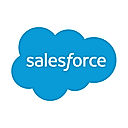
What is Salesforce and how does it work?
Salesforce is a futuristic Customer Relationship Management Software bringing companies and their customers together. The integrated software helps departments like commerce, marketing, sales and service to get a unified view of each client. Moreover, companies can also leverage on the particular to deliver amazing shopping experiences to individual buyers, automate time-consuming jobs, assure quick resolution to queries raised from the customers front and strategise personalised marketing schemes. The solution serves organisations scattered across industries like retail, automotive, higher education, public sector, media, communication, hospitality and transportation, nonprofit and more. With Salesforce, organisations get the advantage of joining the 150,000+ like-minded companies where they can find a massive community of experts ready to help in their company’s growth, besides offering an estimate of their Return on Investment (ROI). Lastly, AI technology equipped chatbot (Einstein) within the software helps companies reassess past interactions with individual clients and better understand raised queries.
Read moreSW Score Breakdown
94% SW Score The SW Score ranks the products within a particular category on a variety of parameters, to provide a definite ranking system. Read more
What is Keap and how does it work?
Keap is an intuitive Sales, CRM and Marketing Automation software that can be utilised by businesses to enhance their sales and save time as well. Companies get to generate more leads, sort them out and forward the right kind of messages to the right people. They can also trust on the particular to generate a robust customer experience and gather loyal patrons. Its inbuilt features and functionality include email marketing, reporting and analytics, sales pipeline, CRM, sales and marketing automation, appointments, payments and more. Users can leverage Keap to generate custom forms and embed them within their landing pages and websites. This also helps them trigger automated actions in real-time. Inbuild SMS and Email marketing feature help users forward broadcast messages to individual target groups, driving in greater sales. They can also automate the entire sales follow-up and enhance lead conversion rates through the sales pipeline.
Read moreSW Score Breakdown
94% SW Score The SW Score ranks the products within a particular category on a variety of parameters, to provide a definite ranking system. Read more
What is Thryv and how does it work?
Thryv is a platform that enables businesses to meet modern customer’s expectations simply and efficiently in today’s era. It is a highly secured and easy-to-use Business Management Platform that automates tasks while also putting the customers at the center of the business. The platform enables users to reach more customers by letting them find their customers at the right time, the right way. They can plan their daily activities through calendar sync, automated reminders, and conversations in one inbox. Thryv enables businesses to accept secure payments at low, competitive rates from anywhere and securely. Users can request reviews quickly and get notified instantly, thus allowing them to respond simultaneously. Other value-added features that users can utilize include Marketing Automation, Document Storage and Sharing, Social Media Management, Reputation Management, and online presence enhancement. It allows businesses to offer their customers an interactive login area and also sync their business info across 60+ listings websites like Google, Yelp, Facebook, and more, thus giving them a modern and mobile-ready website.
Read moreSW Score Breakdown
94% SW Score The SW Score ranks the products within a particular category on a variety of parameters, to provide a definite ranking system. Read more
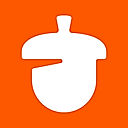
What is Nutshell and how does it work?
Nutshell is a sales automation CRM and email marketing tool for B2B teams to help them optimise their efforts and focus more on building good relationships. Its marketing solution seamlessly connects with users CRM data, enabling them to get their sellers and marketers to a point where both get benefited. The tool also automates the process of personal email sequences and provides funnel and activity reports to users in real-time. Nutshell can be used to design and send marketing emails to thousands of contacts in one go. It helps users to create highly targeted audiences based on their customer data. The impact of email marketing campaigns can also be tracked in real-time. Nutshell makes the work a lot easier by bringing multiple tools for sales and marketing in one place. It is the most flexible CRM solution for sales reps, offering four different views, list, chart, board and map, to manage the work pipeline.
Read moreSW Score Breakdown
94% SW Score The SW Score ranks the products within a particular category on a variety of parameters, to provide a definite ranking system. Read more
What is Copper CRM and how does it work?
Copper is not just another CRM platform; it's a powerful tool designed specifically for businesses that leverage Google Workspace. Copper seamlessly organizes all the communications—emails, calls, files, and notes—for every contact, providing a comprehensive overview of the entire relationship history with each client or lead. This means no detail is too small, and every interaction is logged, offering insights that are crucial for nurturing and maintaining strong relationships. With intuitive features like tagging, filtering, and sorting, one can easily segment the leads and customers based on any criteria of choice, allowing for targeted business development strategies and a more in-depth analysis of where the opportunities are originating. Furthermore, Copper is designed to streamline the lead qualification process, ensuring that more prospects turn into paying customers. Real-time notifications keep you informed about when the contacts need engagement, while the ability to add custom tags and fields helps to personalize the approach for different groups, such as VIPs or high-potential leads. One of Copper's standout features is its email tracking capability, enabling one to know precisely when a significant lead or customer opens the message so one can follow up promptly. This interaction tracking and customization level ensures that Copper is not just a CRM but a comprehensive platform for facilitating and expanding your business relationships.
Read moreSW Score Breakdown
93% SW Score The SW Score ranks the products within a particular category on a variety of parameters, to provide a definite ranking system. Read more
What is Streak and how does it work?
Streak is a CRM software that’s entirely integrated within your gmail inbox. It relieves you of a number of stress as it brings everything related to your CRM function at one place, i.e. in your inbox. With Streak’s support pipeline, you can get access to the entire support history of the customer you’re talking with, which will allow you to help that customer better or even pitch in a new deal. Streak’s email tracking notifies you when your proposal is read, thus, giving you an idea of when to follow up and close the deal. It also lets you know if your support message has resolved an issue or if the contact hasn’t yet read your helpful message.
Read moreSW Score Breakdown
93% SW Score The SW Score ranks the products within a particular category on a variety of parameters, to provide a definite ranking system. Read more
What is Vtiger and how does it work?
Vtiger all-in-one CRM stands out as a comprehensive solution designed to streamline and enhance the synchronization between the company's marketing, sales, and support teams by leveraging unified customer data through its One View feature. Simplifying CRM to its core, Vtiger equips businesses with the necessary tools and functionalities across crucial departments such as Sales, Help Desk, and Marketing. This enables a holistic view of customers, incorporating essential details like names, phone numbers, previous interactions, and account history for more informed decisions and strategies. By utilizing features such as landing pages, web forms, email campaigns, and customized sequences, Vtiger CRM aids in acquiring leads and fostering enduring relationships. The Process Designer feature further allows for the designing, automation, implementation, management, monitoring, and optimization of business processes, enhancing operational efficiency. Moreover, Vtiger's extensive collection of preloaded email and print templates streamlines communication and document customization, saving valuable time. Additionally, Vtiger simplifies appointment scheduling, enabling meetings to be arranged in just a few clicks, thereby ensuring that managing the business engagements is both efficient and hassle-free.
Read moreSW Score Breakdown
93% SW Score The SW Score ranks the products within a particular category on a variety of parameters, to provide a definite ranking system. Read more
What is Insightly and how does it work?
Insightly stands out as a versatile and powerful CRM tool, adept at capturing and managing leads through every stage of the sales process. With Insightly, users benefit from comprehensive contact management capabilities, enabling them to effortlessly track essential lead information, including details derived from emails. The platform's seamless integration with popular cloud storage services like Dropbox, Box, Google Drive, and Microsoft OneDrive simplifies file uploads, ensuring a hassle-free experience. Beyond its CRM functionalities, Insightly features an inbuilt project management system that allows for continuous workflow monitoring and timely content publication. Its adaptability makes it an ideal choice for various sectors including accounting, construction, education, health, and real estate, solidifying its position as a fundamental tool for businesses aiming to streamline their operations and enhance productivity.
Read moreSW Score Breakdown
92% SW Score The SW Score ranks the products within a particular category on a variety of parameters, to provide a definite ranking system. Read more
What is Zendesk Sell and how does it work?
Zendesk Sell is a salesforce automation software to make better decisions in Sales. It is simple, user-friendly, and designed to help sales reps to keep selling. Focused on increasing productivity, the software gives quick access to relevant deal data to facilitate ease of analysis and collaboration. Data capture is automatic, and therefore, agents and sales reps can always stay on the same page when handling customer accounts. It streamlines the building and management of sales pipelines so that reps can prioritize prospects and customers. The greatest USP of the software is enabling users to send emails, make calls, view deal history, and schedule meetings in a few clicks. SmartList is another fantastic feature that allows for the segmentation and filtering of deals and leads in real-time. Businesses can integrate their everyday tools with the platform or create their own Zendesk apps to be used exclusively. Zendesk Sell’s SDKs and APIs provide the foundation for the successful project integrations.
Read moreSW Score Breakdown
92% SW Score The SW Score ranks the products within a particular category on a variety of parameters, to provide a definite ranking system. Read more
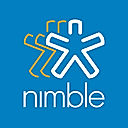
What is Nimble and how does it work?
Nimble is a comprehensive Customer Relationship Management (CRM) solution for G Suite and Office 365 teams. It helps users connect with their customers wherever they are in the world and is the only CRM that works across every social network. It generates auto-enriched contact profiles by sourcing information from the internet. Users just need to search any name and the Nimble browser extension will present enough business insights, contact information and interaction history to get them started. The software helps its user gain a 360-degree view of their leads and customers by enabling them to allocate teams interaction history and contact information. Users can also update deal status in real-time, add notes to a record and access social handles. Nimble can also be utilised by personnel to forward personalised, template group emails from their own email account. Other important functionalities include email tracking, pipeline management, today page, to-dos management, calendars etc.
Read moreSW Score Breakdown
92% SW Score The SW Score ranks the products within a particular category on a variety of parameters, to provide a definite ranking system. Read more
What is Bigin by Zoho CRM and how does it work?
Bigin is a pipeline-focused CRM software designed particularly for small businesses. The software’s design is minimal and comes with a clean dashboard that shows all the relevant information to the user. It gives an all-round view of all the contacts along with every bit of relevant information organized in one place. This 360-degree overview helps the users to connect with the prospects easily through email, phone, Twitter, and other web forums as well. Users can have better pipeline visibility with the application’s user-friendly pipeline management tools. Being customizable, it enables the addition of relevant fields to get specific results easily. Besides, there is also a smart filter tool that can quickly sort data so that one does not have to go through the entire record every time. Easy to create workflows can automate many routine tasks, help inefficient tracking of deals, etc. Bigin by Zoho CRM allows the creation of product lists and gives the option to associate new deals with them and all these without leaving the platform. The feature set, along with data management and security systems like import/export, role management, audit logs, and GDPR compliance, make Bigin one of the best CRM solutions for small firms.
Read moreSW Score Breakdown
92% SW Score The SW Score ranks the products within a particular category on a variety of parameters, to provide a definite ranking system. Read more
What is Freshsales and how does it work?
Freshsales, also known as Freshworks CRM, is a cloud-based customer relationship management (CRM) tool that can help businesses grow their revenue through context-driven sales. This highly-rated CRM can help businesses close deals faster, improve seller effectiveness, reduce IT complexity, streamline the sales process, generate new opportunities, and much more. Some of the top features of Freshsales include sales lead tracking, sales management, event tracking, one-click phone, personalized bulk emails, email prioritization, AI-powered chatbots, customizable web forms, page visit tracking, visitor intent tracking, activity timeline, predictive contact scoring, deal insights, third-party integrations, dynamic forecasting, 360° customer view, automated sales campaigns, etc.
Read moreSW Score Breakdown
92% SW Score The SW Score ranks the products within a particular category on a variety of parameters, to provide a definite ranking system. Read more
What is Pipeliner CRM and how does it work?
Pipeliner is a CRM designed especially for sales. It has a sales friendly interface and a built-in automation engine. The software offers uniform navigation to users, and every screen is logically organized to keep the user-focused. Users have an option to customize views if they don't like the default view. Users don't need to be from a technical background to use the software as admin. Anyone can administer the software and require no separate training or certification. The Pipeliner comes with instant dynamic visualized reporting, which lets users generate reports from anywhere in the system. Users can generate standard, pivot, and even advanced business intelligence reports. It also offers performance dashboard reports. The tool enables users to point and click interfaces to build processes, automate routine tasks, and increase efficiency. The software offers third party integration. The software is also available in the form of a mobile app, which increases users' efficiency and productivity. They can scan business cards and make voice to text notes effectively with the assistance of the tool.
Read moreSW Score Breakdown
92% SW Score The SW Score ranks the products within a particular category on a variety of parameters, to provide a definite ranking system. Read more
What is HubSpot CRM and how does it work?
A forever-free customer relationship management software that provides solution to all your CRM needs. HubSpot CRM automates the tasks for your sales people which allows more work with less data entry. The interactions are tracked down automatically and a separate visual dashboard displays deals for total visibility. Now handle upto 1,000,000 contacts, users and storage without any expiration date all of it without paying a penny. With Hubspot CRM, you can also send emails in a personalized sequence which is delivered as per the schedule you set. Get notified whenever any lead opens your email so that you know how to follow-up with that particular lead.
Read moreSW Score Breakdown
91% SW Score The SW Score ranks the products within a particular category on a variety of parameters, to provide a definite ranking system. Read more
What is OnePageCRM and how does it work?
One PageCRM is an advanced sales CRM that assists all business sizes and maintains all sales controls. It keenly focuses on what needs to be done next, pursue with every lead, close more deals, and maintain all teams harmoniously on the same page with one sales action at a time. OnePage CRM is significantly useful as it helps teams manage the lead pipeline and stay concentrated on following up with every prospect each day. The tool helps to maintain all contacts in one place and manage the audience as well. OnePage CRM primarily focuses on sales activity, the software guides users to configure the next actions for each customer; it helps conclude the next step that will keep them closer to a sale. The actions are organized by their requirement into a color-coded action stream list, offering the users a precise action plan for the day.OnePage CRM is an effective tool that every business must look after to opt for. It is time-efficient and automates work proficiently. The software significantly generates leads from anywhere on the web and the pricing plans start from $9.95 per month.
Read moreSW Score Breakdown
91% SW Score The SW Score ranks the products within a particular category on a variety of parameters, to provide a definite ranking system. Read more
What is Act! and how does it work?
Act! CRM is designed keeping in mind the needs of small size and mid size businesses to build lasting relationships with their customers. The software lets you personalize your platform and work-station the way you want so that your employees can adapt to it easily. Make informed decisions with Act! by using its interactive visual dashboard which displays snapshots of real-time metrics. You can also customize these reports in your unique way to get a better understanding of it. With Act! CRM, you get a number of powerful marketing and sales features that help you fuel your business growth. You can also send mobile-friendly campaigns that can drive sales to your contacts and groups.
Read moreSW Score Breakdown
91% SW Score The SW Score ranks the products within a particular category on a variety of parameters, to provide a definite ranking system. Read more
What is NetHunt CRM and how does it work?
NetHunt is a Gmail CRM for small and medium sized businesses which aims at making your relations as simple as possible. Its live collaboration feature allows all your team members to receive live and instant updates regarding all the changes inside the Records. With NetHunt Cloud feature, you can run your business 24/7 from anywhere in the world using any device that has Internet. It is also flexible and allows you to modify and structure records in the way that suits your business the best. NetHunt CRM also takes your privacy and security of the information very seriously and makes sure you have control over the information shared.
Read moreSW Score Breakdown
91% SW Score The SW Score ranks the products within a particular category on a variety of parameters, to provide a definite ranking system. Read more
What is ForceManager and how does it work?
ForceManager is a CRM that enables users to connect with their customers in person or video conference supported by Artificial Intelligence. Users can access, consult, and upload data on their tablets, phones, etc. The tool allows users to instantly sync all their sales activity feed in the software, including videos, phone calls, and in-person visits. ForceManager gives users easy access to features like voice to text reporting, run and measures sales campaigns, and real-time insights on the reports. It enables users to support their team with Dana, which is a voice-activated assistant. The tool is integrated with Apple's Siri and provides automatic reminders, event detection, and smart follow-up suggestions. ForceManager gives users a 360° overview of their entire sales process. It allows them to close deals remotely with just a click of a button and sign any documents quickly, thus returning from any device within a few minutes. This reduces the business travel expenses and shortens the sales cycle for the users.
Read moreSW Score Breakdown
91% SW Score The SW Score ranks the products within a particular category on a variety of parameters, to provide a definite ranking system. Read more
What is Sellsy and how does it work?
Sellsy is an end-to-end complete CRM, invoicing, and accounting software solution that helps you reduce administrative complexities. It let the finance department get rid of overhead work with an automated online solution for accounting. The tool's CRM allows users to create multiple sales pipelines to follow-up with their prospects efficiently and collaborate on their team's closing deal. The tool also provides email automation, lead tracking, and scoring features. It enables users to monitor each page of their website that customers visit and then create an automatic scoring tool to qualify opportunities. The invoicing part helps users create quotes and invoices, accept online signatures, receive payment for the invoice, and track the amount. The invoices will be personalized with users' logos, page background, and their company's information. Users' can use the repetitive billing feature to generate the invoice and bill automatically. The accounting software connects the user bank with software for quicker and better online accounting. Users can also make use of Sellsy to manage expenses, and lets users export accounting.
Read moreSW Score Breakdown
91% SW Score The SW Score ranks the products within a particular category on a variety of parameters, to provide a definite ranking system. Read more
What is Method CRM and how does it work?
Method CRM is a customisable QuickBooks Customer Relationship Management software. It assists admins in saving time by simplified contact management, activity tracking, and accurate estimating. The software ensures that all management systems are properly synchronised, while its two-way integration with QuickBooks offers businesses the edge they need. Method CRM offers customisable built-in solutions to manage leads and invoicing as well. Additionally, its direct connection to apps like Gmail, Mailchimp and other integrations via Zapier enables users to focus more on the growth of business and less on mechanical data entry. The software’s simplified lead tracking feature can be used to record interactions, schedule follow-ups and assign tasks to teammates at the same time. Moreover, real-time status view functionality offered by Method, helps businesses look into ongoing deals while managing the entire sales process by organising sales data in a centralised system. The software also provides personalised service with the customer's history of interactions, purchases etc., keeping customers engaged with timely follow-ups.
Read moreSW Score Breakdown
Typical Features
Unique Features


The Average Cost of a basic CRM Software plan is $25 per month.
52% of CRM Software offer a Free Trial , while 19% offer a Freemium Model .
| PRODUCT NAME | SW SCORE | AGGREGATED RATINGS |
|---|---|---|
|
|
98 | 4.3 |
|
|
94 | 3.9 |
|
|
94 | 4.2 |
|
|
94 | 4.4 |
|
|
94 | 4.3 |
|
|
93 | 4.6 |
|
|
93 | 4.3 |
|
|
93 | 4.1 |
|
|
92 | 4.2 |
|
|
92 | 4.5 |

Top 10 Emerging Trends and Technologies in CRM Soft...
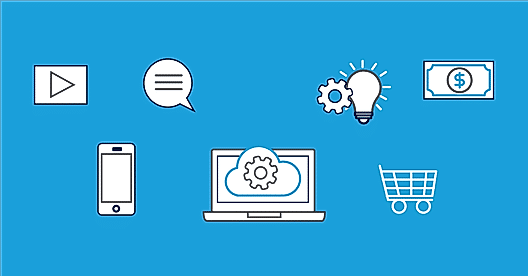
Top 10 CRM Integration Solutions to Try in 2024
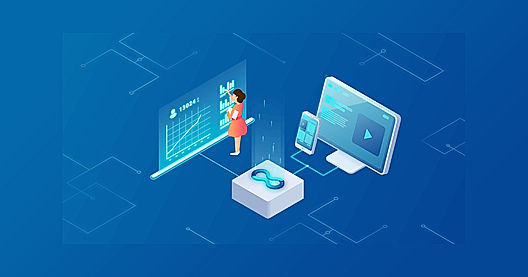
Top 6 Visitor Identification Software to Use in 2023
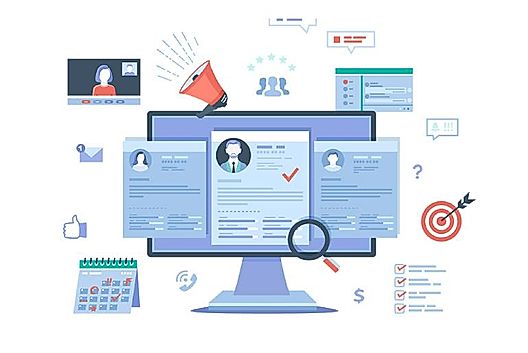
CRM vs. CMS: Which Does Your Business Need?
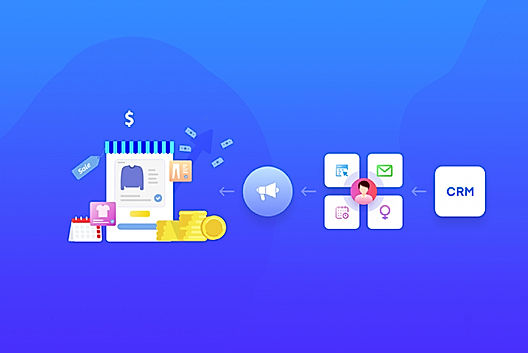
Top 8 E-commerce CRM Software to Use in 2023
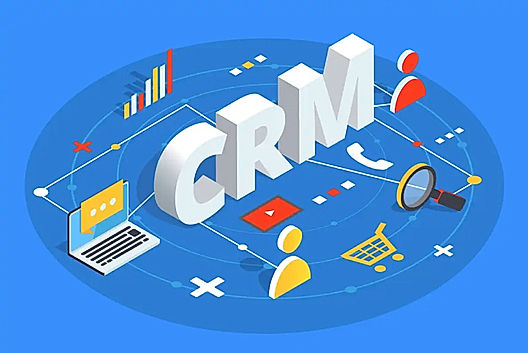
Why CRM Implementation Can Be a Challenge for All B...

Turning Your Average Business Development Team into...
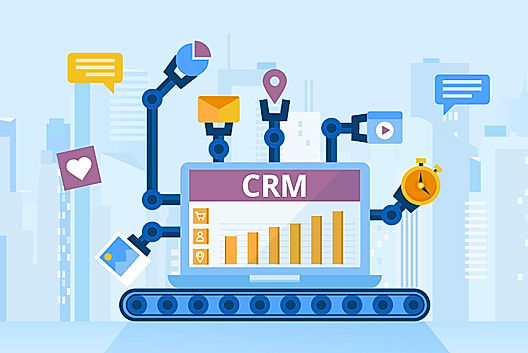
CRM & Marketing Automation: Differences &...
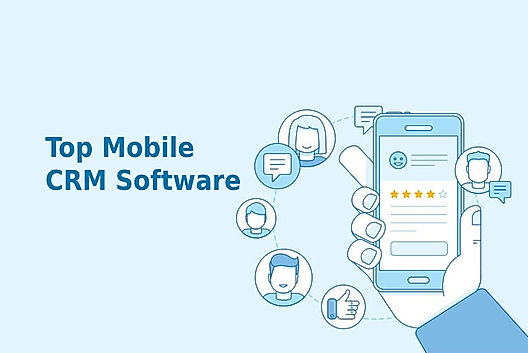
Top 10 Mobile CRM Software in 2022
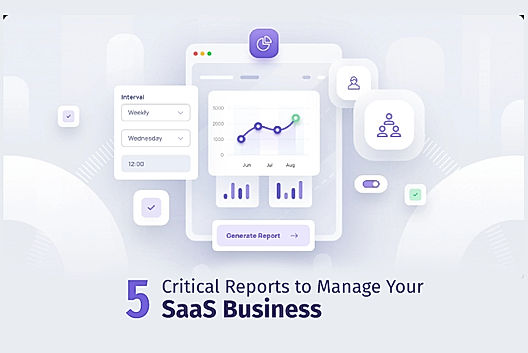
Five Critical Reports to Manage Your SaaS Business
A (Customer Relationship Management) CRM Software helps businesses to manage their relationship with the customers while also providing various tools and features to convert leads into sales. A CRM software is very effective for any business as it brings a number of sales, marketing, and customer-facing functions at one single screen. It also stores details about your customers to help you in handling them better and, thus, ensuring a healthy relationship with your customers.
This buyer's guide is for professionals looking to leverage Customer Relationship Management (CRM) software to improve their business. It caters to a diverse range of users, including:
By understanding the specific needs of each audience segment, this guide will provide tailored information and recommendations to help you choose the most suitable CRM solution for your role and business objectives.
The CRM software market is experiencing robust growth, driven by the increasing focus on customer-centricity, data-driven decision-making, and automation. Here's a snapshot of the current market landscape:
Some of the leading players in the CRM market include:
CRM pricing varies significantly depending on features, user count, and support options. Here's a general breakdown:
Based on the most recent research reports and publications.
CRM stands for Customer Relationship Management. It's a software platform designed to help businesses manage all aspects of their interactions with customers, from initial contact to ongoing engagement. Think of it as a centralized hub for everything customer-related, streamlining data storage, communication, and workflow.
While specific features vary across different CRM platforms, the core functions typically include:
These are just the core functionalities, and many CRM platforms offer additional features like project management, social media integration, and mobile accessibility.
Remember: While specific features and benefits may differ, the goal of CRM software remains the same - to optimize customer relationships, foster stronger engagement, and ultimately drive business growth.
In today's competitive landscape, nurturing customer relationships and optimizing operations are crucial for success. This is where CRM software shines, offering a plethora of benefits that go beyond the usual suspects, like improved customer relationships and increased sales. Let's dive deeper into how CRM software can transform your business:
Remember: CRM software is not just a technical tool; it's a strategic investment that can fundamentally transform how you interact with customers, manage your business, and drive growth.
CRM software isn't just for specific industries or company sizes; its benefits extend to a diverse range of businesses and professionals. Let's explore who can reap the most rewards from implementing a CRM:
Example: A real estate agency uses CRM to track leads, manage property listings, and nurture relationships with potential buyers and sellers. This allows them to close deals faster, personalize communication, and build stronger client relationships.
Example: A fitness center uses CRM to manage member memberships, track attendance, and send targeted promotions based on individual preferences. This fosters personalized experiences, increases member engagement, and boosts retention rates.
Example: A freelance graphic designer uses CRM to manage client projects, track deadlines, and send invoices. This saves time, improves communication, and allows them to focus on delivering high-quality work.
Remember: The best way to determine if CRM software is right for you is to evaluate your specific needs and challenges. Consider factors like your business size, industry, budget, and desired functionalities. With its diverse range of benefits and applications, CRM software can empower businesses and professionals of all kinds to achieve greater success.
Implementing CRM software can be a game-changer for your business, but it's crucial to understand both the benefits and potential drawbacks before making a decision. Let's take a balanced look at the pros and cons:
Setting Realistic Expectations:
By understanding both the advantages and potential challenges, you can make an informed decision about whether CRM software is right for your business and set realistic expectations for its impact. Remember, it's about using CRM as a tool to empower your people and processes, ultimately leading to a more customer-centric and successful organization.
Navigating the world of CRM software can be overwhelming, especially with the vast array of features available. However, some essential functionalities stand out as crucial for managing customer relationships effectively. Let's explore the top features of CRM software:
Let's dive deeper into the exciting world of new-age features in CRM software beyond the essential functionalities we discussed earlier. These features are rapidly transforming the way businesses interact with customers, offering powerful capabilities for enhanced engagement, improved efficiency, and data-driven decisions:
Remember: Implementing these new-age features requires careful consideration and strategic planning. Ensure they align with your business goals, customer needs, and data capabilities to maximize their impact and avoid overwhelming your team.
The CRM landscape is evolving rapidly, and these new features are the engine driving customer-centric business success. By keeping them on your radar and understanding their potential, you can future-proof your business and stay ahead of the curve in the exciting world of customer relationships.
Bonus Features:
Note: When choosing CRM software, prioritize features that align with your specific needs and business goals. Don't get overwhelmed by an abundance of functionalities; focus on the core features that will empower your team to build stronger customer relationships, enhance sales performance, and drive overall business success.
Implementing CRM software isn't just about checking a box; it's a strategic investment that can yield real, measurable results for your business. Let's dive deeper into the tangible benefits you can expect, backed by examples and quantifiable data:
Remember: These are just a few examples, and the specific benefits you experience will depend on your industry, company size, and chosen CRM software. However, the potential for quantifiable improvements in customer relationships, sales, productivity, and decision-making is undeniable.
Invest in the right CRM solution, implement it strategically, and watch your business reap the rewards of a deeper understanding of your customers, optimized processes, and data-driven success.
CRM software isn't a one-size-fits-all solution, but its adaptability makes it a valuable tool across diverse industries and functional areas. Let's explore how different organizations leverage CRM to achieve their unique goals with recent examples and studies:
These are just a few examples, and the possibilities are vast. The key is to identify your specific needs, choose a CRM solution that aligns with your goals, and implement it with user adoption in mind.
Additional Tips for Successful User Adoption:
By following these steps and showcasing real-world, recent examples, you can inspire your team to embrace the power of CRM and unlock its full potential for success.
The allure of CRM software is undeniable, promising streamlined workflows, happier customers, and a skyrocketing bottom line. But before you jump on the bandwagon, take a moment to assess your business needs and determine if CRM is the missing piece or simply another piece of software clutter. It's crucial to understand whether it's the right fit for your business. This guide will help you navigate the decision-making process by identifying key pain points and problem statements that indicate CRM could be your missing puzzle piece.
If you answered YES to any of these questions, CRM software could be a game-changer for your business. By streamlining customer management, optimizing sales processes, improving team collaboration, and unlocking valuable customer insights, CRM can empower your business to:
Remember: CRM is an investment, but the potential return on that investment can be significant. Before taking the plunge, carefully consider your specific needs, budget, and resources to choose the right CRM solution for your business.
This guide is just the first step. If you're wondering which CRM features would address your specific pain points, which platforms might be a good fit, or how to implement CRM successfully, We’re here to help! Feel free to ask me any questions you may have, and our experts will guide you through the journey of finding the perfect CRM solution to unlock your business's full potential.
Navigating the vast world of CRM software can be overwhelming. Let's break down the selection process into manageable steps to find the perfect solution for your business:
Remember: In order to adopt this framework, some customization should be done to specific needs and priorities. Continuous evaluation should be carried out to assess its performance regularly and make adjustments as required. Seek guidance from our experts for tailored advice.
Bonus Tip: We created SW Score at SaaSworthy to help users find the most suitable SaaS products. In a market with hundreds of thousands of options, this score captures the essence of a product to simplify the selection process. The goal of the SW Score is to provide an accurate representation of a SaaS product's capabilities, allowing users to easily find the most useful and relevant product for their specific requirements.
So, you've chosen the perfect CRM for your needs! Now comes the crucial part: making it work for your business. Here's a practical guide to navigating the implementation and setup process:
Bonus Tips:
By following these steps and adapting them to your specific needs, you can set up your CRM for success and unlock its full potential for improved customer relationships, streamlined processes, and business growth. Remember, it's a continuous journey, so embrace the learning curve and keep optimizing your CRM to drive lasting value for your business. Speak to our experts for tailored advice.
CRM software can be a game-changer for your business, but navigating the pricing landscape can feel like a maze. Let's break down the different models and factors influencing cost to help you find the perfect fit for your needs and budget:
Pro Tips:
Examples:
Remember: The "perfect price" is subjective and depends on your specific needs. By understanding the pricing models, influencing factors, and your own priorities, you can make an informed decision and find the CRM solution that delivers the best value for your business.
Still unsure or If you have any specific questions about pricing or need help comparing different vendors? Don't hesitate to ask! Our experts are here to guide you through the process and ensure you make the best decision for your business.
Choosing the right CRM software is a crucial decision that can significantly impact your business. To ensure an informed final decision, here are the key takeaways to keep in mind:
Remember:
By carefully considering these key takeaways, you can make an informed final decision about the right CRM software for your business. The goal is to choose a solution that empowers your team, streamlines processes and ultimately drives success.
The realm of Customer Relationship Management (CRM) is undergoing a groundbreaking transformation driven by the formidable power of Artificial Intelligence (AI). This evolution is not just a technological advancement; it's a fundamental shift in the dynamics of customer engagement and business operations. AI-enhanced CRM systems are becoming a critical tool for businesses seeking a competitive edge in today's market. Let's explore the comprehensive scope of this AI-driven revolution in CRM:
The integration of AI in CRM systems presents an array of benefits:
To fully embrace and benefit from AI in CRM, businesses should:
In conclusion, the fusion of AI with CRM is not merely a technological upgrade but a strategic revolution, redefining how businesses interact with customers and manage relationships. By leveraging AI's immense capabilities, companies are poised to unlock new levels of customer engagement, operational efficiency, and strategic foresight, steering towards a future of sustained success and innovation.
Typical Features
Organizing customer data in a centralized location and handling contact details, demographics, transactions, etc.
Ensures after-sales interactions with your customers and solve queries related to your products and services
Develop customer relationships, automate marketing programs and measure your marketing ROI
Enables management of multiple lists and communications with them
Helps in managing the projects necessary for streamlining and enhancing the customer relationship management tasks.
Call Logging helps to register call details such as call duration, date and time of calls, notes, etc.
Create effective sales proposals by generating multiple quotes per opportunity
Lets you manage your prospective leads by scoring them on the basis of their response.
Lets your sales representatives, as well as customers, view details and prices of each product.
Provides insightful reports and important business metrics to track and measure the outcomes and progress.
Interactive tools meant to make the application highly collaborative and encourage teamwork
Opportunity or Pipeline Management allows tracking and managing sales opportunities, including stages of the deal, probability of closing, and associated activities throughout their lifecycle.
Helps to segment contacts and customers into groups based on various criteria such as demographics, behavior, purchase history, hottest leads
Allows to synchronize with other systems for up-to-date information across platforms
Helps to assign, manage sales territories and conveniently track their progress
Streamlined management of the sales cycle from lead to close
A systemized and organized way of managing all your leads and their conversation.
Helps tracking, monitoring, supervising, and meeting deadlines concerning ordered goods in an automated and systematic way
Track and manage your referred customers.
Ability to store and manage various information and documents in electronic format.
Incorporating dedicated phone lines for customer support and sales, enabling direct communication and call tracking
Unique Features
Helps to customize the system for use in industry-specific use cases
Advanced analytics for predicting customer behavior and sales opportunities
Unified management of customer interactions across multiple channels, including web, mobile, and social media.
Leveraging Internet of Things devices for enhanced data collection and analysis
Allows for building smart automation for repetitive tasks, enhancing efficiency and consistency.
AI Assistant helps you provide information and perform specific tasks to significantly improve your success rate. It can perform one or many tasks like analyzing your deals, contacts, and emails, generating the perfect email, and more.

Looking for the right SaaS
We can help you choose the best SaaS for your specific requirements. Our in-house experts will assist you with their hand-picked recommendations.

Want more customers?
Our experts will research about your product and list it on SaaSworthy for FREE.